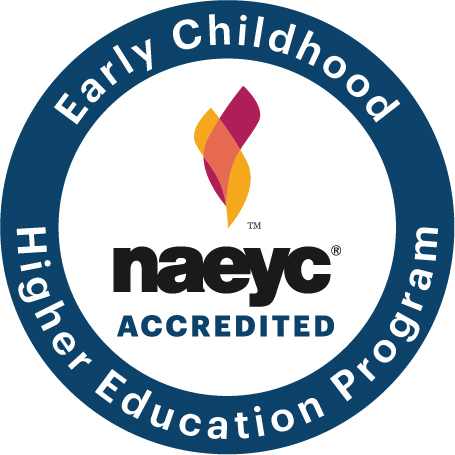ECD
Early Childhood Development
ECD 101- Introduction to Early Childhood
This course is an overview of growth and development, developmentally appropriate curriculum, positive guidance techniques, regulations, health,safety, and nutrition standards in early care and education. The importance of professionalism, family/cultural values and practical applications based on historical and theoretical models in early care and education is highlighted in the course.The purpose of this course is to serve as an introduction to the many components of the early childhood profession and the development of the early care and education teacher.
ECD 102 – Growth and Development I
This course is an extensive study of philosophies and theories of growth and development of infants and toddlers. Focus in on “total” development of the child, with emphasis on physical, social, emotional, cognitive and nutritional areas. Development tasks and appropriate activities are explored in this course.
ECD 105 – Guidance-Classroom Management
This course is an overview of developmentally appropriate, effective guidance and classroom management technique for the teachers of young children. A positive pro-active approach is standard in the course.
ECD 107 – Exceptional Children
This course includes an overview of special needs children and their families. Emphasis is on prevalence of disorder, treatment modalities, and community resources serving exceptional children. The teacher’s role in mainstreaming and early identification as well as federal legislation affecting exceptional children.The course purpose introduces students to the world of the exceptional child. Common exceptionalities that may be in group-care settings, the roles of the preschool teacher in meeting the needs of the individuals and the home-school relations will be discussed.
ECD 131 – Language Arts
This course is a study of methods and material in age appropriate language experiences. Opportunities are provided to develop listening speaking, pre-reading and prewriting skills through planning, implementation, and evaluation of media, methods, techniques and equipment. Methods of selection, evaluation, and presentation of children’s literature are included.
ECD 132 – Creative Experiences
In this course the importance of creativity and independence in creative expression are stressed. A variety of age-appropriate media, methods, techniques and equipment is utilized. Students plan, implement and evaluate instructional activities.
ECD 133 – Science and Math Concepts
This course includes an overview of pre-number and science concepts developmentally-appropriate for young children. Emphasis is on the planning, implementation, and evaluation of developmentally appropriate activities utilizing a variety of methods and materials.
ECD 135 – Health, Safety, and Nutrition
This course covers a review of Health/Safety practices recommended for child care and include information common diseases and health problems. Certification preparation is provide in pediatric safety,CPR, and First Aid. Guidelines and information on nutrition and developmentally appropriate activities are also studied in this course.
ECD 200 – Curriculum Issues in Infant and Toddler Development
The course includes a focus on infant and toddler care. Emphasis is on brain development and implications for caring for infants and toddlers. The student will look at planning and teaching strategies as they relate to child development, curriculum, and environment.
ECD 203 – Growth and Development II
This course is an in-depth study of preschool children growing and developing in today’s world. Focus is on “total” development of the child with emphasis on physical, social, cognitive and nutritional areas of development. Developmental tasks and appropriate activities are explored in the course.
ECD 205 – Socialization and Group Care of Infants and Toddlers
This course involves the study of the socialization and group care of infants and toddlers. Emphasis is on guidance and management,understanding behavior, temperament, the importance of routines primary care and continuity of care, and examining the elements of quality environment.
ECD 237 – Methods and Materials
This course includes an overview of developmentally-appropriate methods and materials for planning, implementing, and evaluating environments. Emphasis is on integrating divergent activities in each curriculum area.
ECD 243 – Supervised Field Experience I
This course includes emphasis on planning, implementing, and evaluating scheduled programs, age appropriate methods, materials,activities, and environments of early childhood principles and practices.
ECD 251 – Supervised Field Experiences in Infant/Toddler Environment
This course is a study of planning, implementing, and evaluating scheduled programs, age-appropriate methods, materials, activities and environments of infants and toddlers.

Link to NAEYC Annual Report may be found here:
NAEYC Annual Report
“The Associate in Applied Science Major: Early Care and Education at Williamsburg Technical College is accredited by the Commission on the Accreditation of Early Childhood Higher Education Programs of the National Association for the Education of Young Children, www.naeyc.org. The accreditation term runs from Spring 2022 through Spring 2029.”